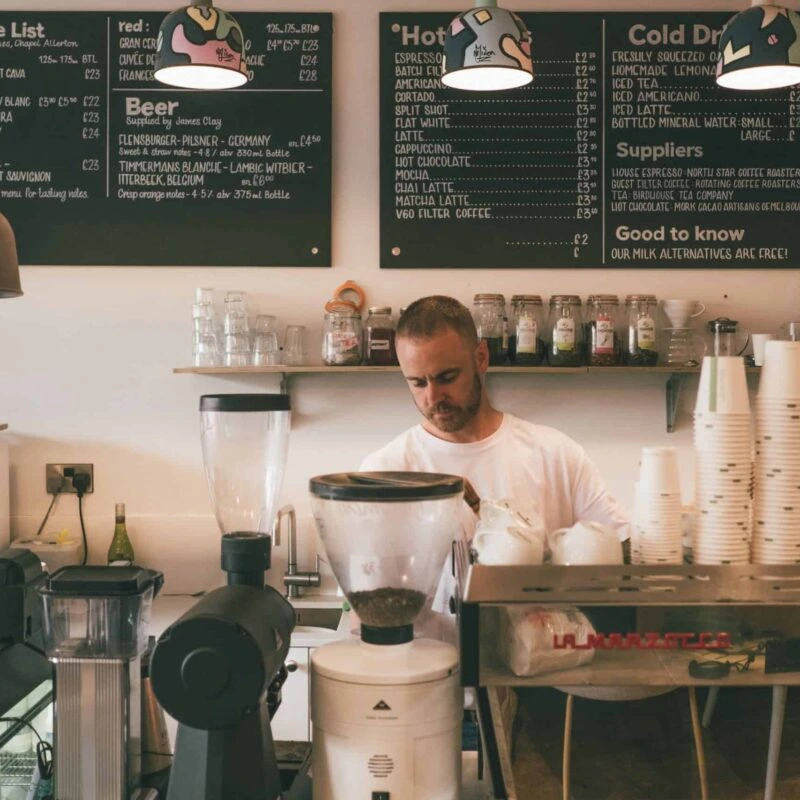So, what is 2021 going to look like?
We are talking about trends, emerging technologies and other adaptation measures that have been taken by the industry participants to make sure that they can survive, as the economy struggles to bounce back.
We are going to look at some of the key parts of the industry, including restaurants, takeaways and events.
We will then talk a little bit about the trends we expect to pick up and the changes that could arise post-COVID-19.
Restaurants Have To Deliver or Die
The restaurant business, a huge contributor to the hospitality industry, obviously got hit hard because of the stay-at-home orders. With no patrons, most businesses were forced to close completely. The handling of food could not be done with crowds and now, the emerging solution has been takeaways.
Takeaways are not only convenient and safe, but also ensure that the businesses in the food industry can keep their heads above water.
Restaurants were already operating on thin margins and the new reality does not favor this balancing act. Instead of relying on one revenue stream, restaurants have to diversify how they make money, which brings us to takeaways and deliveries in general.
Takeaway Services and Where They’re Headed
Settling into the new normal is not easy because not many restaurants had delivery services before the pandemic started. Setting up a new delivery service is not easy, especially not in the middle of a pandemic.
There are other choices to think about, like Just Eat, Uber Eats and Deliveroo but, these services charge a high commission that many of the restaurants may not be able to pay and still turn a profit.
Others have opted for a combination of in-house delivery services and third-party services where needed.
At this point, the restaurants that have managed to set up delivery services and stay afloat, have spent a lot of money and effort.
The likelihood is that many people who need food will continue to order online, even after the pandemic. There likely won’t be any dismantling of the delivery services set up.
In the United Kingdom, for instance, the indication is that more people want to get takeout and make online purchases that then have to be delivered. Meanwhile the British restaurant-to-consumer delivery market has spiked by 21% in terms of revenue growth this year.
These are all indications that the industry is adapting to the times and most of the technologies and new revenue streams introduced will be kept operational even after COVID-19 is no longer a problem.
What Are Events Going To Be Like?
Crowds are a big no. Yes, there are vaccines in distribution and over the course of several months, we will have to wait and see how effective they are in the real world. All indications show that they are one of the key ways in which the economy, and especially the hospitality industry, may reopen.
What we are doing with events now, is still going to be what we do with events in the near future, until the pandemic is under control. You can expect:
Outdoor events to avoid airborne transmission
Temperature checks at every event
Sanitation provisions at every event
Socially distanced arrangements
Entertainment is still a big part of our lives, which means that events will go on, with precautions to ensure that they do not turn into petri dishes for the coronavirus to flourish.
Trends in 2021
The pandemic exposed more than just the inadequacies of the hospitality industry. It introduced new trends that will be ongoing. Let’s look at some of them.
The Age of Clean and Safe Hotels
Heightened cleaning standards are the new norm. Hotels all over the world are expected to adopt new rules set by the World Health Organization and other international hospitality bodies like The American Hotel & Lodging Association.
The rules are all about winning consumer trust and ensuring that the hospitality industry doesn’t get written off.
Re-Imagining The On-Premises Experience
Hospitality has traditionally been characterized by touch. Feeling welcomed, feeling the warmth and generally having an experience that feels like home.
However, customers now want to reduce touchpoints by introducing self-service and touchless technologies that give an industry which relies on touch, an experience that feels like touch, without any actual touching.
You will see more self-service tech in the industry.
Contactless Technology Comes To The Forefront
Even before the pandemic, advanced and contactless technology in rooms was accruing a loyal fanbase. The pandemic accelerated this and any interaction that could pose a risk, is either avoided entirely or replaced with contactless technology.
Voice-activation is now commonplace with hand-free controls that minimize contact with room conveniences like thermostats, remotes, drapes and more.
A Digital Future
The future is not inextricably linked to emerging technologies. Some of them had only barely picked up when the pandemic started, while other had fans and some were not even in use. However, we now conduct meetings online, work online, buy online and pretty much end up having to use more chatbots, virtual reality tools and AI-powered tools.
All Demographics Want Sustainability
Take millennials for example. They have surpassed Baby Boomers just about everywhere in the workforce. They are twice as likely to support brands with string environmental commitments and who care about social issues.
Things like sourcing food locally, farming sustainably and humanely, creating authentic experiences and partnering with local producers, are all great ways to get started.
As We Head Into 2021…
The hospitality industry has to adopt new technologies that make transacting easier. Many people used food delivery services for the first time in 2020, and 2021 will not be any different. The new trends of food delivery are the main focus of the future-oriented restaurants. People will continue to use these services, as long as they feel safe and reliable.
Those looking to survive the next few years will need to think about removing single-use plastics from their operations, monitor how they use water and source food from local farms. Experts agree that businesses in the hospitality industry need to build multi-purpose spaces that enhance health and provide a holistic experience for customers.
If the industry participants position themselves well and align their operations with the interests of the customers, they will see it pay off in the coming years.



